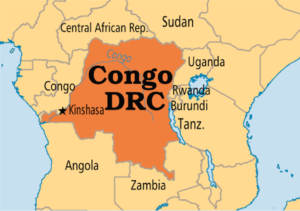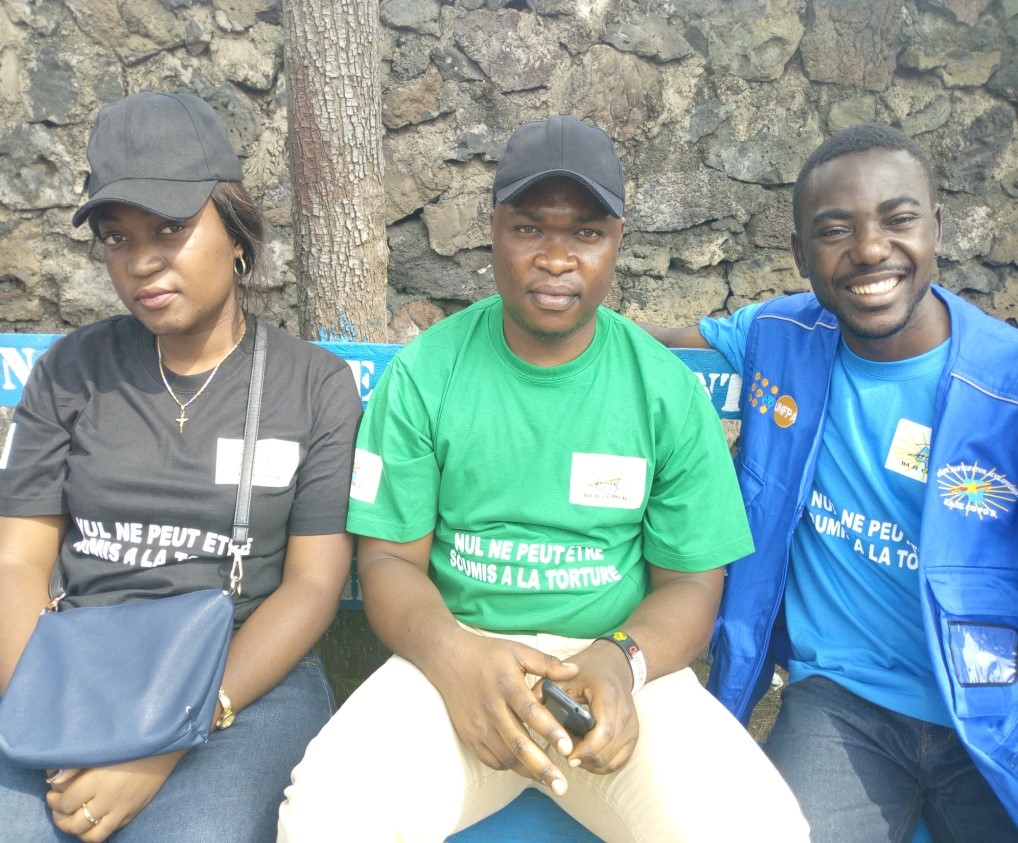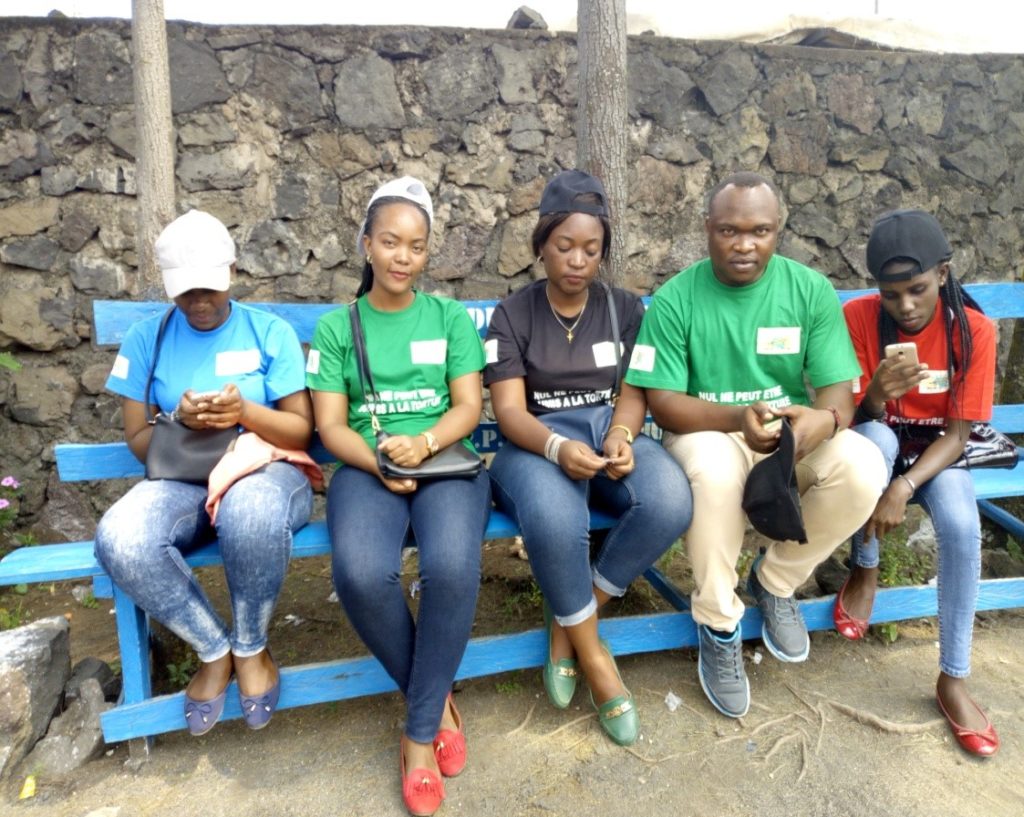
By BUKASA Fidèle, MANEGABE Dieudonné & KAVONO Samuel
Long time ago, fundamental questions about man and his mores have preoccupated human nature without any adequate solutions be found thereon. In an approach that we consider pragmatic which seems right to us, we would like to show to the world how torture is still on in different sectors and tends to affirm itself in all human societies by taking an existential normal form, wanted and prestigious. This is revealing to the face of the world a inquiry that RAJECOPOD and PRICNOVAD conducted. Before all, let us consider the following declarations, treaties and decisions. According to the international treaty related to civil and political rights of 1976, at its article 7, it is written:
The word « torture » designates all act whereby severe, physical or mental pains are willingly inflicted to a person to get from him/her or from a third person information or avowals, to punish him/her of an act that he/she or a third person committed or is suspected to have committed, to scare or to press the third person or for all other motive on any form of discrimination whatever it is, when such pains are inflicted by an agent of public service or all other person acting at official tittle or at his/her instigation or with his/her clear consent. This word does not extend itself to pains solely resulting from legal sanctions, inherent to those sanctions or caused by them.
In the same outlook, the Universal Declaration of Human Rights of 1948 says at its article 5 what follows: None will be submitted to torture, neither to pains nor cruel, inhuman, degrading treatments.
In the same way, it is to note as in the Universal Declaration of Human Rights but now in the European convention of human rights what comes (become effective in 1953, mentioned in its article 3): None will be submitted to torture, neither to pains nor cruel, inhuman and degrading treatments.
Finally, the constitution of our country of 18 February 2006 forbid torture and all kind of cruel, inhuman and degrading treatment. The article 61 of the same article doesn’t tolerate any exception at this principle, whatever circumstances are.

In fact, torture always intends to break the personality of the victim and constitutes negation of the inherent dignity of the human being. The Congolese constitution, acts and other decisions of international organisation as well as the United Nations condemn torture as one of the most harmful acts perpetrated by human beings against their similar. Torture is a crime by virtue of international right. In all relevant instruments, it is the object of an absolute prohibition and cannot be justified in any circumstance.
This prohibition is part of the customary international right. It means that it is mandatory to each member of international community, independently of the fact that he ratified or not international tools in which torture is specifically forbidden. Systematic or generalised practice of torture constitutes a crime against humanity. We demonstrated above that in 1948, the international community condemned already torture and other pains or cruel, inhuman and degrading treatments in the Universal Declaration of Human Rights that was adopted by the United Nations General Assembly before the end of the second world war. In 1975, the General Assembly adopted once again the declaration on protection of all persons against torture and other pains or cruel, inhuman and degrading treatments.
History shows us that during the 80’s and 90’s, progresses have more been accomplished in the elaboration of juridical norms and instruments than in the application of the prohibition of torture. Nevertheless, we realise with high consternation freedom from punishment at world level even in signatory members States of the declaration of United Nations related to rights guaranteeing the dignity of the person.
In 1981, the United Nations General Assembly created volunteer contributions Fund of United Nations for victims of torture to fund organisations which help victims of torture and their families. This courageous taking decision is nowadays the stand of the promotion of adolescent and youth rights in population and development of which RAJECOPOD evinces by implementing the program « KINGA WATOTO » in its project fight against torture.
The convention against torture and other pains or cruel, inhuman and degrading treatments was adopted by the General Assembly in 1984 and became effective in 1987. Its application by States members is supervised by an organ of independent experts, the Committee against torture. It is important to know that in 1987, the General Assembly declared June 26th United Nations International Day of supporting victims of torture.
Analysing the work United Nations did and the one accomplished locally, we estimate that the work to do is still huge. Torture is often situated openly at physical level and we forget that it is so active on the verbal, moral and psychological sides. We can also note that many women and children endure this silently, not guilty, but it is because of the ignorance of some rules of the society life.
Torture is inherent in many houses all over the world and specifically in the Democratic Republic of Congo. Many children are submitted to inhuman treatments and sometimes it seems to be normal in the society. It becomes easy to acknowledge that a parent has right to willingly beat his/her child and sometimes without any reason. Torture is not a spontaneous act, however, it is from a bitter observation that some children are traumatised while being with their parents or hearing their voices in family. That way of operating is one of the forms of tortures which is being developed in our Congolese society, in Goma town.
Henceforth, the United Nations Organisation recognised many times the important role NGOs performed in fighting torture. It is in the same way that RAJECOPOD and PRICNOVAD are rising awareness of parents and pairs to defeat in togetherness that challenge. It is from an alarming scream that these local organisations are advocating for the promotion of teenagers rights to put an end to all informal laws which are reinforcing torture in an other way. Due to many campaigns for the elaboration of the instruments of the United Nations and the set up of monitoring, they bring a precious contribution to the application of the said instruments. It goes in the same way for the RAJECOPOD and PRICNOVAD.

In its totality, torture aims to break the personality of the victim and constitutes the negation of dignity towards human being. It is the truth! If the truth is the thread of the principle of non-contradiction, it is very impossible to acknowledge that torture should be accepted or rejected. What is logical, just and ethical is that this must disappear from the thinking and practice of men and women.
In spite of the absolute prohibition of torture in virtue of local or national and international right, torture persists in all areas of the world. Henceforth, the vocal and active rising of the RAJECOPOD and PRICNOVAD, in their campaign of fighting against torture. Protection of children, family safety, moral and civic education, promotion of the culture of non-violence, pacific management of conflicts as at internal and external level are useful means to stop torture and other forms of crual and inhuman treatments; because we have noted that consequences of torture often go beyond the isolated act on an individual and can be transmitted to generations and lead to violence.
The United Nations Organization has always condemned torture as one of the most harmful acts committed by human beings on their similar. We, as Organizations of the promotion of human rights, fully accept that taking position and take it as our shield of battle.
Torture is a crime towards international right and becomes an object of absolute prohibition that cannot be explained in any circumstance. That prohibition is part of international right and useful to all members of international community (that a state has ratified or not international treaties in which torture is willingly forbidden). It is also suitable to remember that the systematic practice of torture constitutes a crime against humanity.
In a nutshell, June 26 is the occasion to call all parties, including state members of the UN, civil society and individuals all over the world to be united and support hundreds and thousands of persons, especially children and women, who have been victim of torture or who still are. Each one of us at his/her level has the duty of a good education. People agree some false practices or are victim of them because of lack of information. It is for us a honour to put an educational word from Emmanuel KANT. He states: « Someone who is not informed is null, the one who is not disciplined is savage. Lack of discipline is a harm worse than the lack of culture, because this one can get repaired later while we cannot put out wildness and fulfil the lack of discipline.». Torture is a wildness and must end in all its forms because it does not profit to anybody.
BUKASA KABWE Fidèle; PRICNOVAD Cordinator and Former Communication Manager at RAJECOPOD can be reached through bukasaaubry@gmail.com / +243 972544094
MANEGABE BIRINDWA Dieudonné; English Translater and Senior Communication Manager at PRICNOVAD can be reached through manegabedieudonne2@gmail.com /+243 999575403
KAVONO Samuel; Former Coordinator of RAJECOPOD